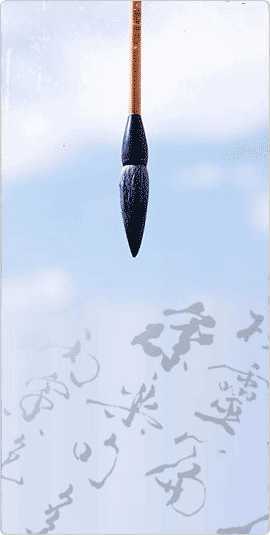Newsletter
To subscribe eChineseOnline Chinese language newsletter, please sign up now or send email to: subscribe-to-newsletter@echineseonline.com.

Chinese Grammar (Beginner)
The Difference between “对 (Duì)” and “双 (Shuāng)”

Learn the Mandarin language – Difference between “对 (Duì)” and “双 (Shuāng)”
Mike learned the Chinese measure word “对 (duì)” in his Chinese lesson. His teacher asked him to make some phrases with “对 (duì).” “一对鞋 (yí duì xié) a pair of shoes, 一对袜子 (yí duì wàzi) a pair of socks, 一对手套 (yí duì shǒutào) a pair of gloves,” he said confidently. All of his classmates burst into laughter when they heard his words, but Mike got very confused. Did he make a mistake?
To know what mistake Mike made, we have to master the usages of “对 (duì)” and “双 (shuāng).” Even though they both mean a “pair (of),” they are combined with different words, for example, “一对耳环 (yí duì ěrhuán) a pair of earrings,” “一双筷子 (yì shuāng kuàizi) a pair of chopsticks.” As for shoes, socks and gloves, “双 (shuāng)” is the right one to be used with. So Mike should say “一双鞋 (yì shuāng xié) a pair of shoes, 一双袜子 (yì shuāng wàzi) a pair of socks, 一双手套 (yì shuāng shǒutào) a pair of gloves.”

So how do we know when to use “对 (duì)” and when to use “双 (shuāng)?” “对 (duì)” means “pair (of); couple (of).” It emphasizes the relative and complementary relationship between two things. It can be used with things and people. For example, “一对耳环 (yí duì ěrhuán) a pair of earrings,” which are relative in the location. “一对夫妻 (yí duì fūqī) a married couple” which are complementary in gender in a marriage relationship.

More examples:
一对翅膀 (yí duì chìbǎng) a pair of wings
一对鸳鸯 (yí duì yuānyang) a pair of Mandarin ducks
Jí Mǔ hé Mǎ Lì zhēn shì tiān shēng yí duì.
吉 姆 和 玛 丽 真 是 天 生 一 对。
Jim and Mary are made for each other.
“双 (shuāng)” is usually used with objects which naturally come in pairs (e.g. 筷子(kuàizi) chopsticks, 鞋 (xié) shoes, etc.). Usually the two things referred by "双" are very similar or even the same thing and they exist in pairs. If one part is missing, this whole object would be incomplete, can not work well, or even become useless. For example, “一双筷子 (yì shuāng kuàizi) a pair of chopsticks,” is only used in pairs.
More examples:
一双眼睛 (yì shuāng yǎnjing) a pair of eyes
一双手 (yì shuāng shǒu) a pair of hands
一双皮鞋 (yì shuāng píxié) a pair of leather shoes
Zhè shuāng xié, yì zhī dà, yì zhī xiǎo, wǒ méi fǎ chuān a!
这 双 鞋,一 只大,一只 小,我 没 法 穿 啊!

These shoes do not match; one is large and the other is small. I can’t wear them!
Mike learned the Chinese measure word “对 (duì)” in his Chinese lesson. His teacher asked him to make some phrases with “对 (duì).” “一对鞋 (yí duì xié) a pair of shoes, 一对袜子 (yí duì wàzi) a pair of socks, 一对手套 (yí duì shǒutào) a pair of gloves,” he said confidently. All of his classmates burst into laughter when they heard his words, but Mike got very confused. Did he make a mistake?
To know what mistake Mike made, we have to master the usages of “对 (duì)” and “双 (shuāng).” Even though they both mean a “pair (of),” they are combined with different words, for example, “一对耳环 (yí duì ěrhuán) a pair of earrings,” “一双筷子 (yì shuāng kuàizi) a pair of chopsticks.” As for shoes, socks and gloves, “双 (shuāng)” is the right one to be used with. So Mike should say “一双鞋 (yì shuāng xié) a pair of shoes, 一双袜子 (yì shuāng wàzi) a pair of socks, 一双手套 (yì shuāng shǒutào) a pair of gloves.”

So how do we know when to use “对 (duì)” and when to use “双 (shuāng)?” “对 (duì)” means “pair (of); couple (of).” It emphasizes the relative and complementary relationship between two things. It can be used with things and people. For example, “一对耳环 (yí duì ěrhuán) a pair of earrings,” which are relative in the location. “一对夫妻 (yí duì fūqī) a married couple” which are complementary in gender in a marriage relationship.

More examples:
一对翅膀 (yí duì chìbǎng) a pair of wings
一对鸳鸯 (yí duì yuānyang) a pair of Mandarin ducks
Jí Mǔ hé Mǎ Lì zhēn shì tiān shēng yí duì.
吉 姆 和 玛 丽 真 是 天 生 一 对。
Jim and Mary are made for each other.
“双 (shuāng)” is usually used with objects which naturally come in pairs (e.g. 筷子(kuàizi) chopsticks, 鞋 (xié) shoes, etc.). Usually the two things referred by "双" are very similar or even the same thing and they exist in pairs. If one part is missing, this whole object would be incomplete, can not work well, or even become useless. For example, “一双筷子 (yì shuāng kuàizi) a pair of chopsticks,” is only used in pairs.
More examples:
一双眼睛 (yì shuāng yǎnjing) a pair of eyes
一双手 (yì shuāng shǒu) a pair of hands
一双皮鞋 (yì shuāng píxié) a pair of leather shoes
Zhè shuāng xié, yì zhī dà, yì zhī xiǎo, wǒ méi fǎ chuān a!
这 双 鞋,一 只大,一只 小,我 没 法 穿 啊!
These shoes do not match; one is large and the other is small. I can’t wear them!



